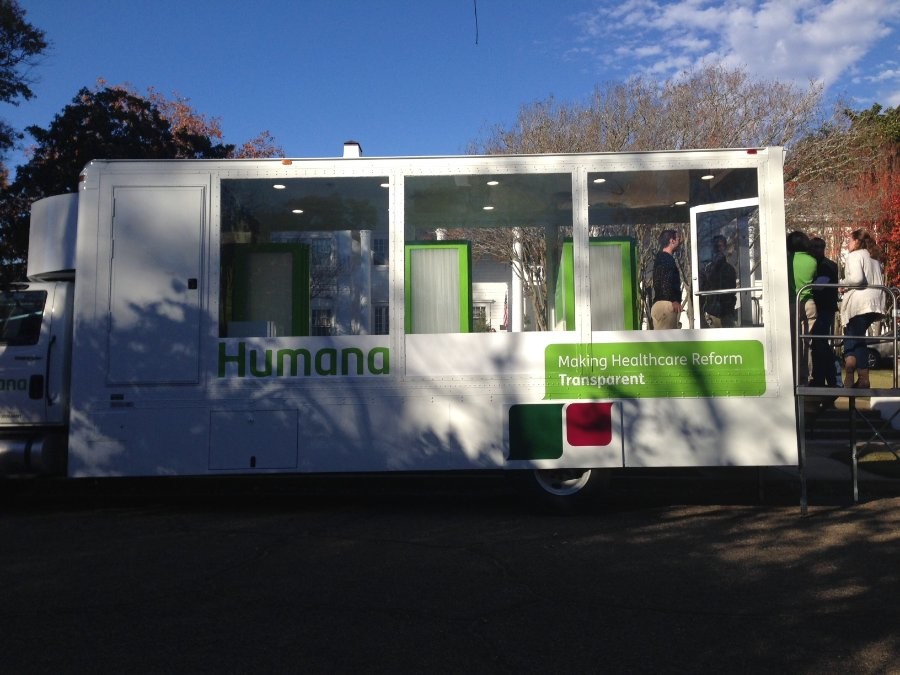During the last two months, there’s been no shortage of discussion about the challenges facing the launch of the federal health exchange website, Healthcare.gov.
Despite all the noise about the initial issues with Healthcare.gov, we can’t lose sight of the forest for the trees. It’s important to remember that the Affordable Care Act was never intended to just be about a website. It was about helping to ensure that Americans have access to health care coverage.
While Healthcare.gov is a key element in helping to usher in a new era of health care, let’s not let the challenges with its launch steer us off course.
A New Law
Long before the launch of the Affordable Care Act, Humana believed that all Americans should have access to affordable, quality health care coverage. While the ACA does not do enough to address rising costs, it does contain many positive, important reforms.
Notably, the health care law removes pre-existing condition limitations as a barrier to coverage and provides financial assistance for those who qualify. Helping people obtain coverage is the right thing to do. When people don’t have access to health care, they delay doing what they need to do. That prevents them from living life fully and becomes more costly later on.
We all know that enabling people to sign up for health care coverage to avoid these types of situations is one thing. Getting them on the path to a healthy lifestyle is quite another.
To underscore that point, let’s take a closer look at some issues – and opportunities – in the state of Mississippi.
A State in Crisis
Mississippi faces significant health challenges. It ranks first in the number of people living in poverty and last in household income among all 50 states. It is also tied with Louisiana as the least healthy state in the nation.
Earlier this year, Humana went where other insurers wouldn’t go. We expanded our health plan offering on the individual health exchange to cover 40 counties in Mississippi, 36 of which did not have a single insurance carrier on the federal exchange until we committed. Individuals who are eligible for subsidies wouldn’t have had any options if Humana hadn’t entered these 36 counties.
There is an old saying: sometimes the greatest risk is not taking one. The opportunity to positively impact these communities and apply what we learn to other areas in our country facing similar challenges clearly outweighs the risks.
What We’ve Seen
One of our first steps in Mississippi has been to reach out to community and health policy leaders, churches, state and local government officials, non-governmental organizations, civic clubs, businesses and community action organizations. A high level of community engagement and collaboration is necessary to make a real difference.
On the educational side, our initial approach has been to reach people where they live, in their day-to-day lives. We launched a bus tour – Covering Mississippi – which is designed to go to the counties where we’re participating in the exchange and answer questions people have about health care.
These initial conversations clearly illustrate the challenges we face. While Mississippians have plenty of questions about the health care law, they also are not sure how it can really help them.
Where We Go
Make no mistake: Helping Mississippi become a healthier state will require a multi-year approach that forces us to rethink routine and experiment with new ideas. More people need to be on the ground helping people understand what steps they can take to improve their health. We have a lot of work to do in Mississippi, and I’ll continue to share what we learn along the way.
Neither Humana nor the government can do it alone. In order to truly thrive together, we’ll need a trusted, collaborative partnership that involves everyone – federal, state and local governments; insurers; community groups; religious organizations and individuals.
We must not be afraid to challenge ourselves if we are to truly make an impact. We all share a responsibility to help educate, provide resources and motivate people to live healthier lives.
CommentShare

